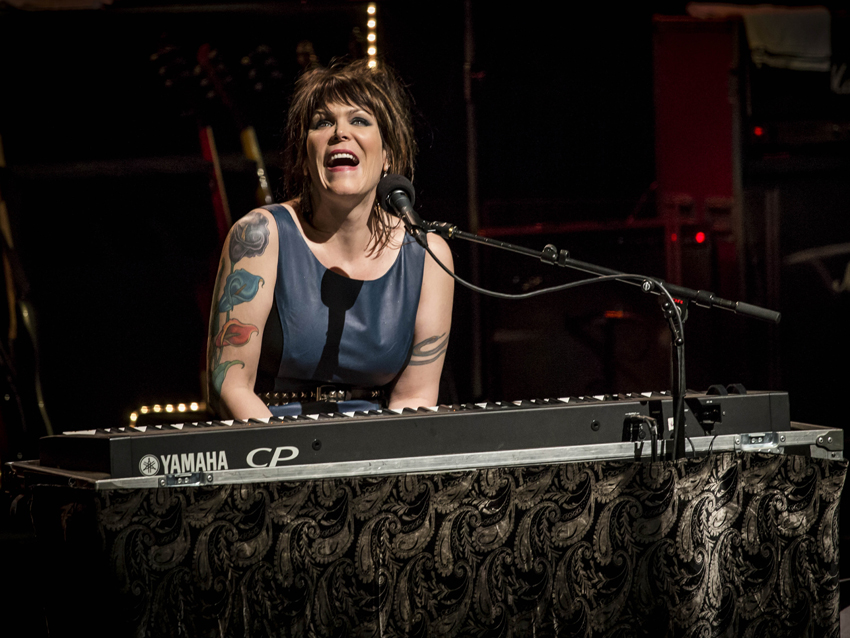
Beth hart's top 5 tips for singers
Having cut three blues-soaked albums with producer Kevin Shirley (two of them collaborations with guitar powerhouse Joe Bonamassa), Beth Hart takes a left turn on her new album, Better Than Home, a more introspective work that touches on gospel and country. For Hart, realigning herself in more of what she calls a "singer-songwriter" direction wasn't a pain-free endeavor.
"I had done the Kennedy Center Honors with [producers] Michael Stevens and Rob Mathes, and they really wanted to make this record with me," Hart explains."The idea was to get me out of my comfort zone a bit. They knew I could do the belting thing, but they wanted more stories from me. It's more inward than outward.
Hart wrote all 11 tracks on Better Than Home, and she says that a theme of denial runs through the bulk of the disc. "That can be a very comfortable place, denial," she says, "because it allows you to push so much stuff under the dug. But once you lift that rug up and look underneath, that's when all the secrets and stories are visible. And it hurts. It's hard to be so honest, but it does make for some great material."
While training a magnifying glass on her pain, Hart brings it vocally on Better Than Home, which is a sustained tour de force for this singer's singer. Speaking of such, on the following pages Hart offers her top five tips for singers.
Better Than Home can be ordered via iTunes and Amazon. For tour dates, click bethhart.com/tour.
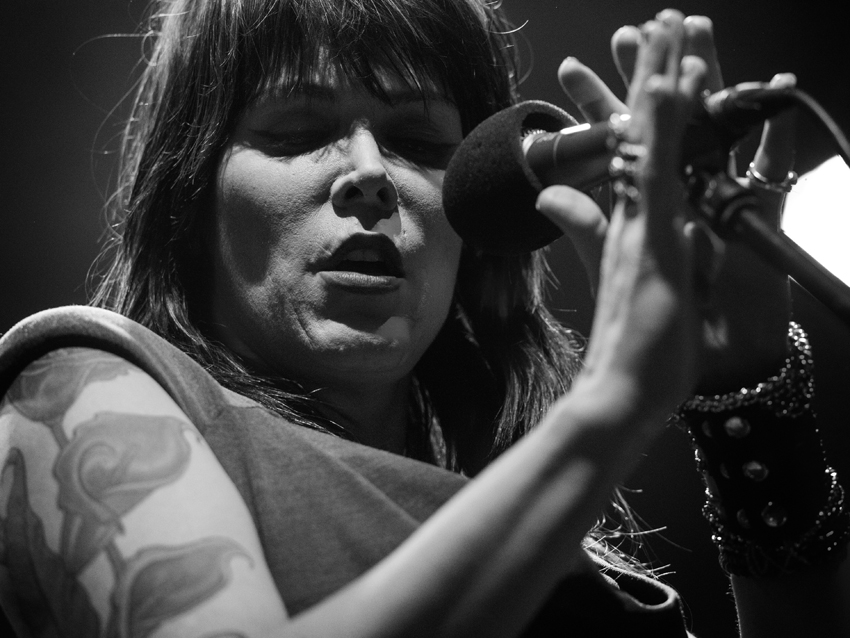
Warm up
“The best way to learn how to warm up is to find a good vocal coach. A coach can show you some tips that will be right for you. Some people do little warm-ups through the day, softly, which is what I do. I know a few singers who will do a half-hour of warm-ups before they go on stage. Whichever manner feels right for you is the one you should go with.
“Think about it: You wouldn’t go out to do a running marathon without stretching out your body and getting prepared; same thing holds true for singing. But I also think that warming up the entire body is important for singing. Take a hot shower or a bath before a gig. You don’t want your body to be stiff before singing; you need to feel relaxed.
“Have tea, do some yoga. If you’re doing an outdoor show in the hot sun, maybe even try to sneak in a little workout before you sing. Rev up your body and have it ready to go. You can’t just go from the couch to the stage.”
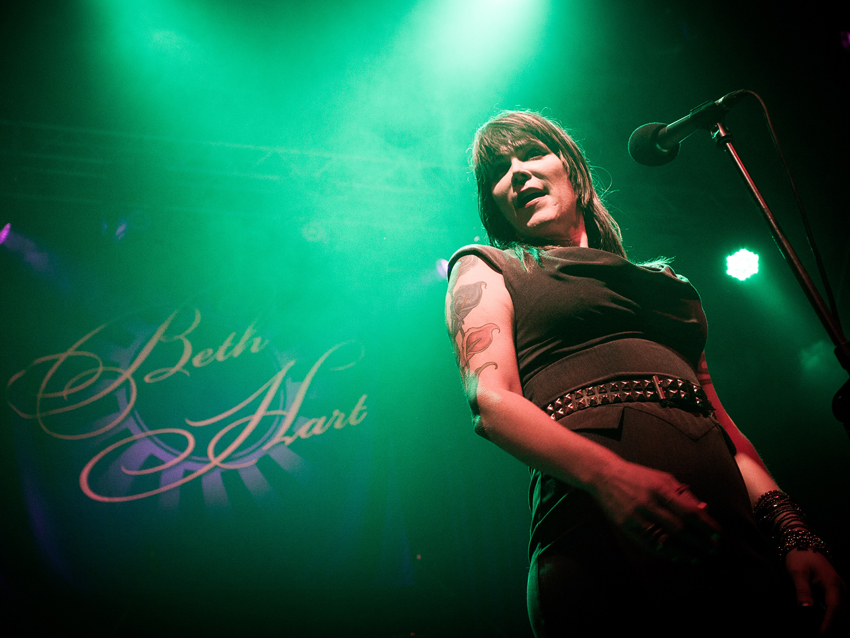
Take care of yourslf
“Having a clean diet is very important for a singer. Sugar swells the vocal cords, and it’s just not good for your body in general. Also, the type of carbohydrates you eat should really come from fruits and vegetables. Wheat can swell the cords just like sugar can, so try to stay away from bread and pasta as much as possible.
“Drink tons of water. Drink teas. I try to stay away from coffee, which is a drag because I love it so much. But it causes acid reflux, which is really bad for your voice.
“It took me years to put all of this into practice. As I’ve gotten older, I’ve gained a little more common sense about what I put into my body and the effects certain things can have. I still cheat a bit. I shouldn’t smoke, of course, but I do. I smoke every day. You’ve gotta do something, right?”
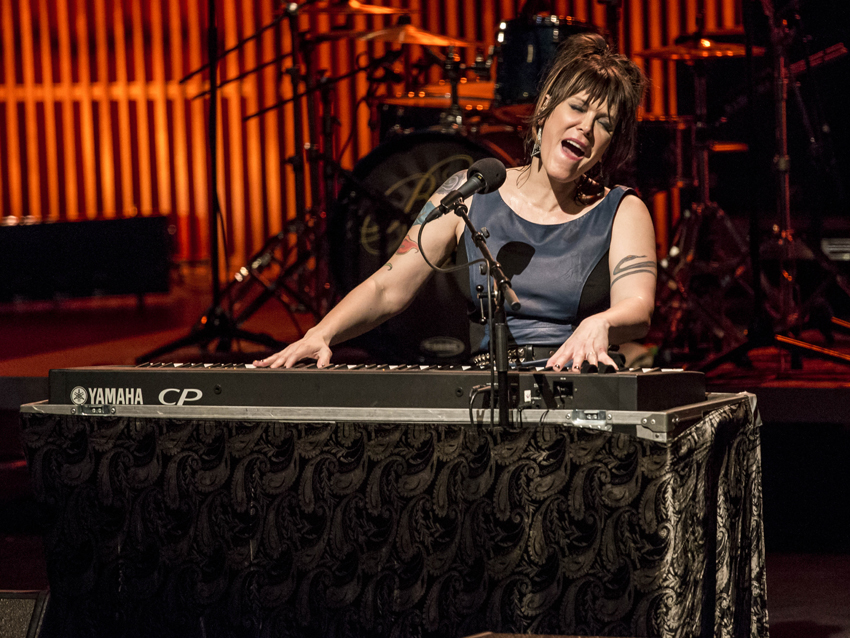
Pace yourself
“I usually book four-hour rehearsals max. Sometimes we’ll go a little longer, but I’ll have the band play without me. I’m good for four hours generally. One thing that’s important to remember is that you don’t have to go full out in rehearsals, and you don’t have to sing every part of the song. You can give the band cues. Just pace yourself.
“I also don’t do more than two days in a row. So if we have 12 or 14 rehearsals booked, I’ll do two on and take a day off. Then I’ll do two more and have a couple of days off. I also do that on the road. When I was younger, they piled on the work, so we’d do TV, radio and live shows all in one day. Now I’ll do my shows on tour and a few interviews, but that’s it. You just can’t talk all day and then go on stage. You won’t have anything left.
“I can be guilty of over-singing on stage sometimes. I get excited and I think I’m not giving enough, so I’ll push it more than I have to. I have to work on that. I’ll notice it in my voice if I push too hard. I have to learn how to how back just enough.”
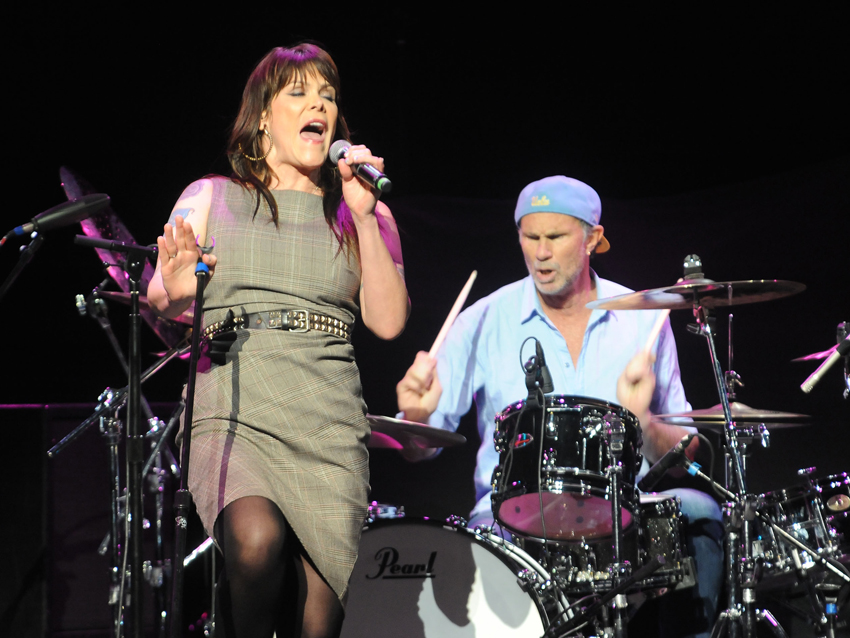
Learn what your voice does
“It’s hard to tell sometimes when a singer is doing something wrong. I think every singer knows their voice – or they should get to know it. People have different levels of power and control. Some people use their diaphragms; others don’t. You have to find the right way to sing that works for your voice.
“Just like guitarists figure out their styles, singers have to get out there and see what their voices can do and what they’re comfortable doing. You find what’s interesting, you find your strengths – it doesn’t happen every night. Some singers can sing anything, any genre, but I think it all comes down to what turns you on. If you feel something in your heart, you can deliver it.”

Stay away from steroids
“Steroids are really, really bad for singers. Avoid them at all costs. My whole life and career, I’ve never been on steroids, but about a year and a half ago I got a terrible bronchial infection, and it wouldn’t go away. They put me on ery strong steroids, which I could only take for three days because I couldn’t sleep anymore.
“What happened was, they cleared up the infection and allowed me to sing at the top of my voice, but I got too used to doing that on the steroids. They stay in your system for a while, even after you stop taking them. Once the stuff was cleared out, it was like, ‘Oh, shit, I’ve got to pull back. I’m gonna injure my voice if I keep pushing this hard.’
“I’m lucky that my cords are in good shape, but I could have really hurt myself. So be careful and don’t use steroids.”
Joe is a freelance journalist who has, over the past few decades, interviewed hundreds of guitarists for Guitar World, Guitar Player, MusicRadar and Classic Rock. He is also a former editor of Guitar World, contributing writer for Guitar Aficionado and VP of A&R for Island Records. He’s an enthusiastic guitarist, but he’s nowhere near the likes of the people he interviews. Surprisingly, his skills are more suited to the drums. If you need a drummer for your Beatles tribute band, look him up.
